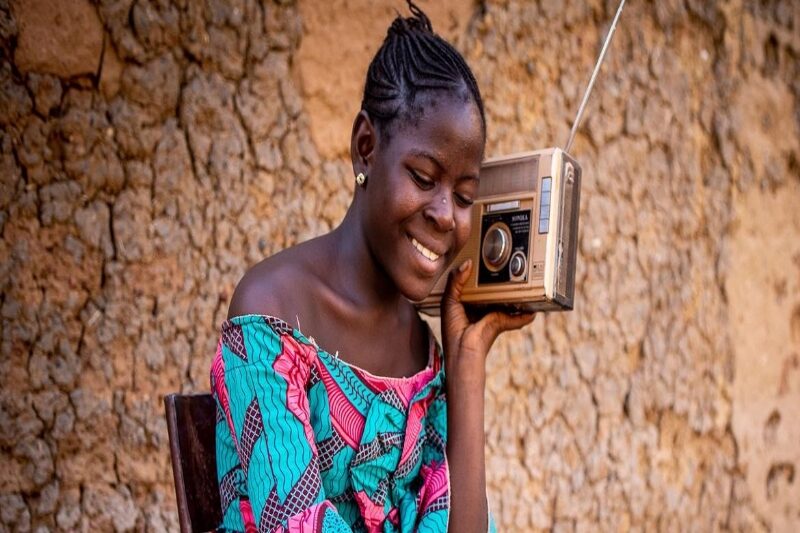It’s not easy being a journalist in Nigeria – especially in the northeast of the country where, armed with just a camera, digital recorder, a pen and paper, many members of the press have died, been kidnapped, harassed or assaulted while carrying out their duties.
And it’s not just the remaining insurgents who are on the attack, the government, military – particularly the counterinsurgency troops – and even civilians have taken on journalists if they do not like what they have reported.
On Wednesday, May 3, World Press Freedom Day was commemorated globally under the theme, “Shaping a Future of Rights: Freedom of expression as a driver for all other human rights”.
Championed by the United Nations Educational, Scientific and Cultural Organisation (UNESCO), the agency said it was the 30th anniversary since the day was proclaimed in 1993 and, although there had been substantial progress towards achieving a free press and freedom of expression, the international community still faced multiple crises.
Conflicts and violence, persistent socioeconomic inequalities driving migration, environmental crises and challenges to the health and wellbeing of people were still major challenges in many countries. And, UNESCO said, disinformation and misinformation online and offline proliferated and seriously affected institutions underpinning democracy, the rule of law and human rights.
Bulama Yerima, a member of Nigerian Union of Journalists (NUJ) and a journalist working at Borno State Radio and Television (BRTV), told RNI that World Press Freedom Day was a time for all journalists to reflect and then take all the necessary measures to ensure they could disseminate information efficiently and effectively by focusing on how the information would affect the masses and those in positions of authority.
“Looking at press freedom in Nigeria, we believe that journalists will only be really free to exercise their duties when threats to their lives and their families cease. Only then will they be free and safe psychologically and physically to do their jobs properly.
“We in the union know that many journalists have experienced unwarranted attacks, harassment and some have even been killed and kidnapped, particularly in Borno, Yobe and Adamawa states. A lot of the violence is a result of the Boko Haram [the Jamā’at Ahl as-Sunnah lid-Da’way Wa’l-Jihād (JAS)] insurgency.
“Every profession has its own hazards but journalists are always where the action is, putting them more at risk than even security operatives because the only ‘weapons’ they carry are a camera, digital recorder, a pen and paper.
“Journalists should not bow and scrape to the agendas set by the government or politicians. A free press and freedom of expression will lead to general human rights and, in turn, it is only when citizens have a truly democratic government, enshrining basic human rights, that the press will be really free.”
All journalists had to keep up the struggle and advocate to end attacks and gags on the press. It was only when there was “absolute” press freedom that issues such as human rights violations could be tackled, he said.
Mustapha Sheriff, who was displaced from the Marte Local Government Area and took refuge in Maiduguri, told RNI that there had been unspeakable human rights violations carried out by JAS insurgents.
“But many security operatives also intimidated, harassed and mistreated us. We had no power then. The insurgents were attacking us, but so were the security operatives who were supposed to be looking after us.
“It has only been quite recently that more press organisations have formed and that has given us an opportunity to speak out about human rights violations whether perpetrated by government officials, the military or civilians.
“For many of us, these organisations have given us a voice that we never had before.”
Shettima Maidugu said: “At the peak of the Boko Haram [JAS] insurgency just about all civilians were victims of human rights violations whether directly or indirectly.”
Human rights, according to the UN, include the right to life and liberty, freedom of movement, freedom from slavery and torture, freedom of opinion and expression and the right to get an education and work. “Everyone is entitled to these rights, without discrimination.”
“During the insurgency our rights were trampled on. Many of our brothers were falsely arrested and detained by the military who accused them of having a relationship with Boko Haram. Many of those innocent men have died and there are still some who are incarcerated.
“Now that we have relative peace, it’s the government, counterinsurgency troops and even some citizens who are abusing our rights. “If these groups infringe on our basic human rights, who can we turn to? Thank heavens for the media.”
SHETTIMA LAWAN MONGUNO






